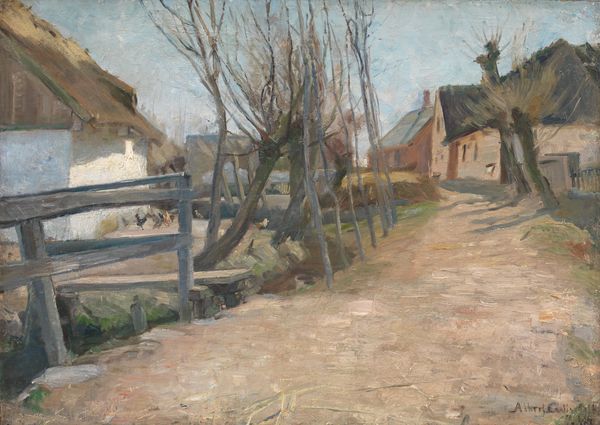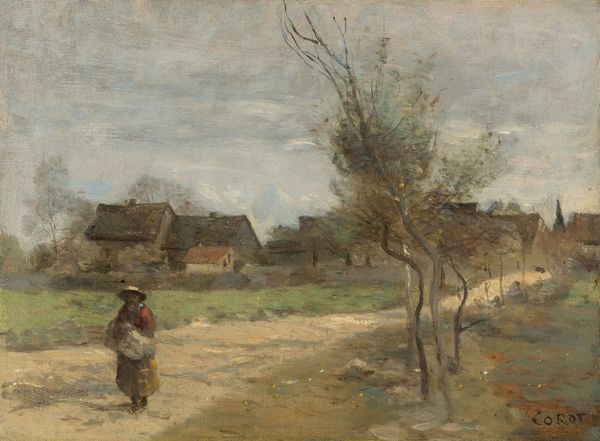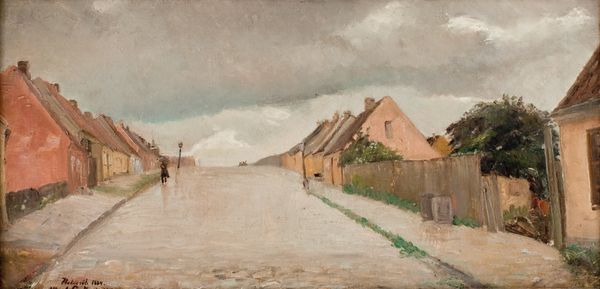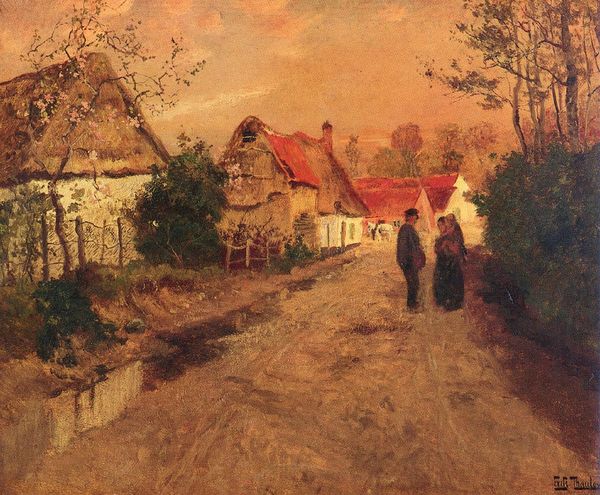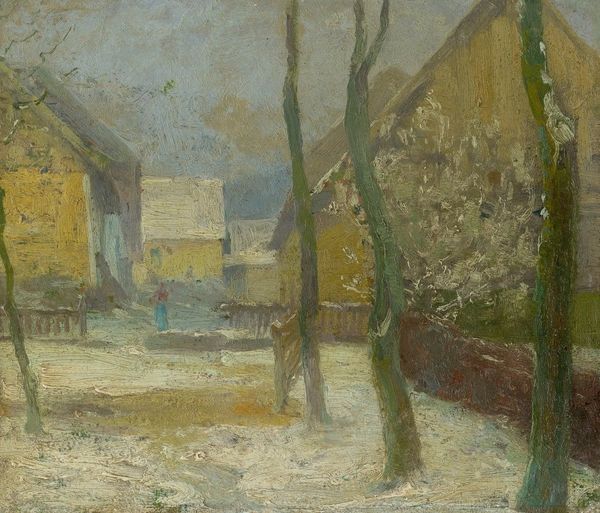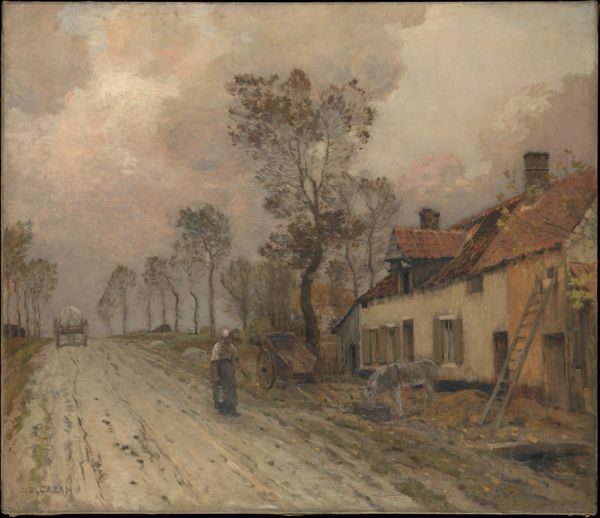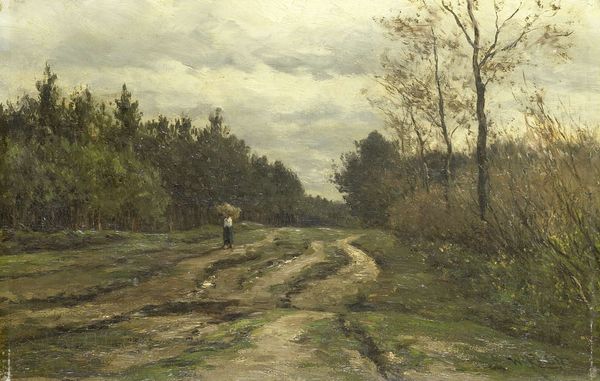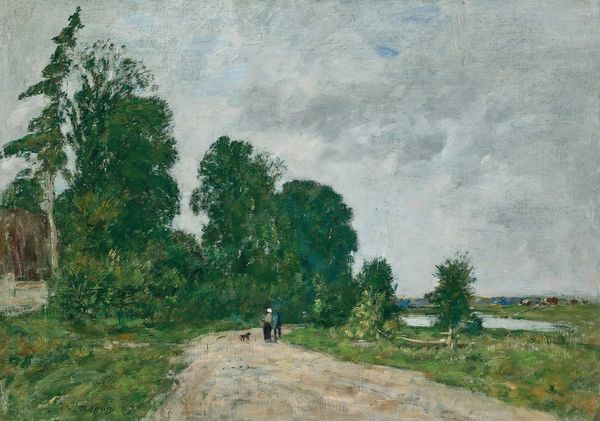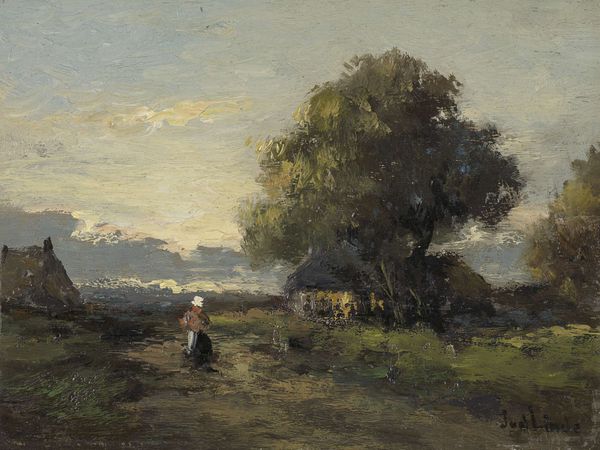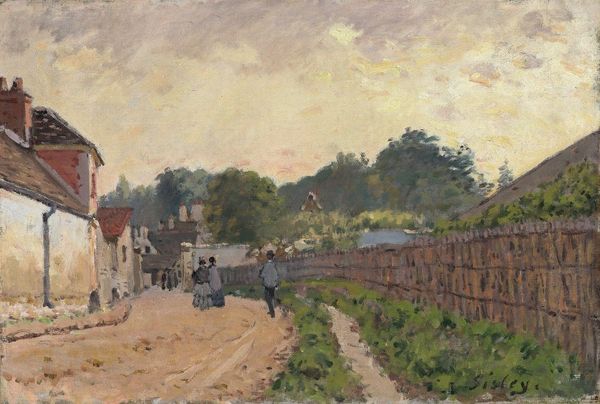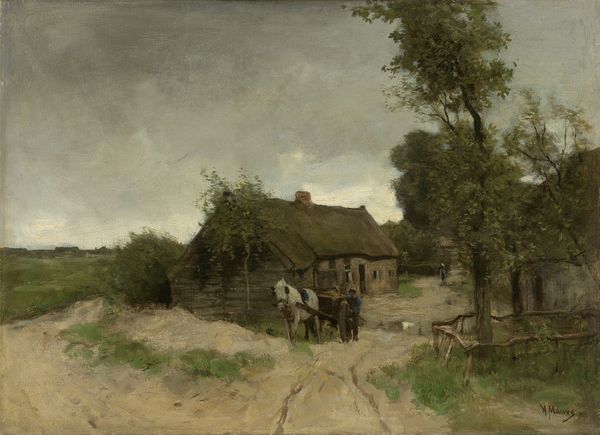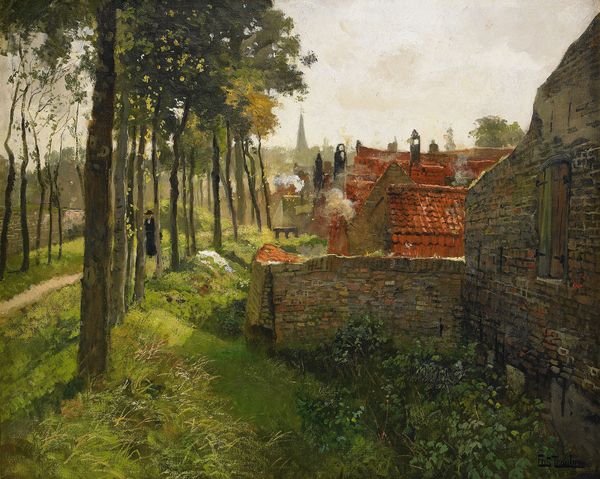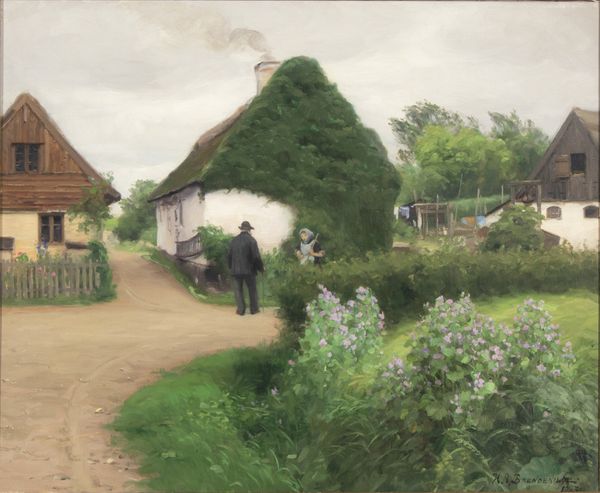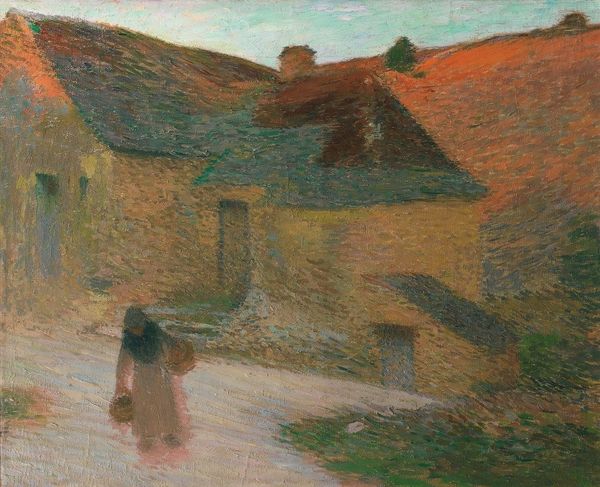
painting, plein-air, oil-paint
#
painting
#
impressionism
#
impressionist painting style
#
plein-air
#
oil-paint
#
landscape
#
impressionist landscape
#
oil painting
#
cityscape
#
genre-painting
Copyright: Public domain
Walter Osborne's "Village Street Scene" presents a study in muted tones, primarily browns and creams, applied with loose brushstrokes that suggest rather than define. The composition, dominated by the road stretching into the distance, evokes a sense of depth, drawing the eye towards the horizon where the village blurs into the sky. This treatment of space and form invites a reading through the lens of structuralism. The village scene isn't merely represented, it's constructed through a network of visual signs. The road, for example, functions as a signifier of connection and movement, but its indefinite rendering challenges fixed meanings, suggesting the ambiguity inherent in representation. The limited palette and soft edges further destabilize clear categorization, hinting at an underlying structure of perception itself. Consider how Osborne uses the materiality of paint to explore perception and representation. The indistinct forms and subtle gradations of colour invite us to question the boundary between representation and abstraction.
Comments
No comments
Be the first to comment and join the conversation on the ultimate creative platform.
